I will not travel hidden (2018)
장르 : 다큐멘터리, 로맨스, 역사, 미스터리
상영시간 : 1시간 52분
연출 : Pablo Zubizarreta
시놉시스
Blanca Luz Brum traveled an unusual path, through twentieth-century Latin America, actively participating in the intellectual, political and artistic movements of Uruguay, Chile, Argentina, Peru and Mexico. It is today a symbol of female emancipation in Latin America. The versions about her life are varied and dissimilar, the testimonies of those who knew her, full of contradictions.

시인을 꿈꾸며 베를린까지 날아온 샬롯. 낯선 도시에서 만난 매력적인 남자 프란츠에게 이미 애인이 있다는 것을 알면서도 유혹에 빠지고 만다. 뜨거운 사랑의 날들을 보내던 중 심지어 전 남자친구 올리버까지 샬롯 앞에 나타난다. 이제 더욱 도발적이고 위험한 욕망의 밤이 시작된다.

The documentary is titled after Arkadaş Z. Özger’s poem “Hello My Dear” which had caused much controversy in the period it was first published. Considered to be in defiance of heteronormativity, the said poem includes references to the poet’s personality, his family, his relationship to the society, and his “unexpected” death, which came three years after its publication. Today, 50 years after it was written, the documentary follows these same lines in the poem utilising cinematic elements. The documentary also rediscovers the poetics; reaches out to the family, the comrades, the friendships, departing from the official historical accounts, cognizant of his experience of otherness, in pursuit of the “lost” portrait of Arkadaş Z. Özger.
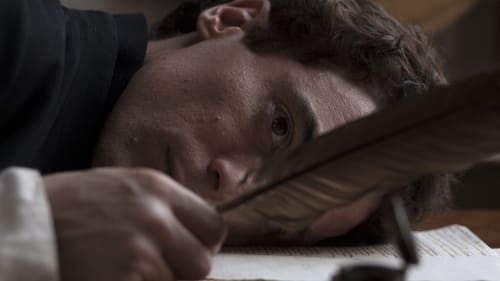
서정적인 선율 속에서 뛰어다니는 세 남매를 보여주며 시작되는 이 영화는 19세기 이탈리아의 대표적인 낭만주의 시인 자코모 레오파르디의 삶을 소재로 한다. 엄격한 아버지의 교육 현장을 반영하는 초반부는 시대상을그대로 재현한 그림 같은 샷들로 구성되며, 전체적으로 19세기의 텍스처를 그대로 살린 실내 조명과 색감은 숭고미를 자아낼 정도로 감동적이다. 구속된 삶을 살았던 고향 레카나티에서부터 실연을 겪는 피렌체, 마지막 거처였던 나폴리에 이르기까지 실제 시인의 여정을 따라가다 보면 신체적 결함으로 인해 사랑과 동시에 죽음을 떠올려야만 했던 그의 시 세계에 한 발짝 더 가까이 다가갈 수 있다. 레오파르디 역의 엘리오 제르마노의 연기는 그야말로 타의 추종을 불허하며, 시를 읊으며 대단원을 장식하는 마지막 샷은 형언하기 힘든 감동을 준다. 모든 도서관 장면들은 실제 레오파르디가 작업했던 곳에서 촬영되었다고 한다. (이수원_2014년 제19회 부산국제영화제)
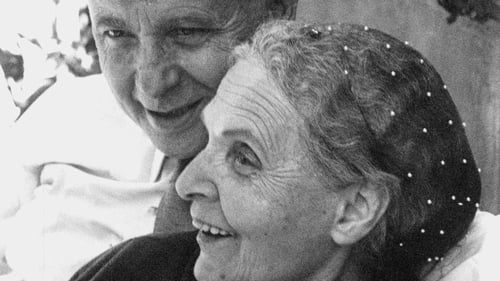
그녀의 코멘트 중에, 아라곤은 엘사의 어린시절을 회상한다. 유명한 커플 루이 아라곤과 엘사 트리올레의 이미지와 시.
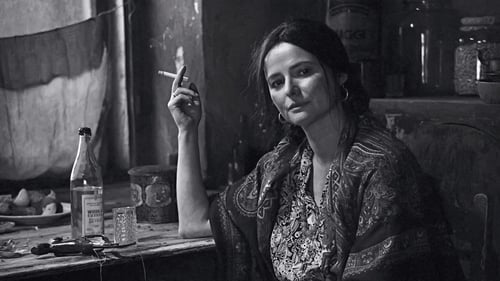
파푸샤에 대한 실화 – 로마 여자로서는 처음으로 시를 쓰고 이를 출판하며 집시 공동체의 전통적 여성상에 맞서 나간다. 이 영화는 파푸샤의 출생에서부터 노년에 이르기까지 그녀의 생애를 따라간다. 어린 시절에 한 강제 결혼, 예전 집시로서의 생활, 2차세계대전과 그 이후, 그리고 공산 폴란드의 강제 정착 및 가난한 도시생활 등. 그녀의 위대한 재능을 알아본 폴란드 시인 예르지 피코우스키를 만나면서 그녀의 작품이 출판될 수 있었지만 이는 그녀를 비극적인 역설로 이끌어간다. 유명한 시인이 가난에 찌들어 살며 그들을 배신했다는 이유로 로마 지역사회로부터 배척당하게 된 것이다.

A dramatic recreation of Dylan Thomas' last tour of America, starring actor Bob Kingdom as the Welsh poet. Originally a successful stage production, the show was adapted for this recorded version by renowned actor Anthony Hopkins (in his directorial debut). Dylan Thomas was one of the twentieth century's greatest poets. He was born in the Uplands district of Swansea in 1914 and died in New York in 1953 at the age of 39. Towards the end of his life, Dylan Thomas toured America, performing his works before sell out audiences across the country. The film features the poems "Fern Hill"; "Do Not Go Gently into that Good Night"; "A Poem in October"; "And Death Shall Have No Dominion"; "A Story (The Outing)" and "Return Journey" .
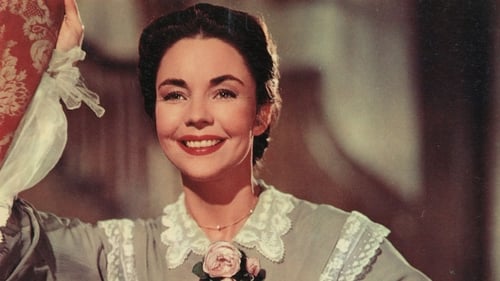
Director Sidney Franklin's 1957 remake of his own 1934 film, about the romance of poets Elizabeth Barrett and Robert Browning.

Documentary about Charles Olson, exploring his life and the significance of Gloucester, Massachusetts.

The life and work of Argentinian writer Jorge Luis Borges, a long interview, fragments of some of his most significant verses and dramatizations of some of his stories. Borges for everyone.

A fragmented biography, inconclusive, partial, of the brilliant Argentinian writer Jorge Luis Borges, based on different testimonies: his links with Leonor de Acedevo —his mother— and María Kodama —his second wife—; his vast culture and devout dedication to literature, his and that of others; his country: the politicians and the disloyal military. Borges gradually builds his own impersonation of Borges.

The lifetime of the great Argentinian man of letters Jorge Luis Borges through narration and interviews of such key players in his life as Leonor de Acevedo —his mother—, María Kodama —his second wife—, and Adolfo Bioy Casares —his best friend and collaborator for decades.
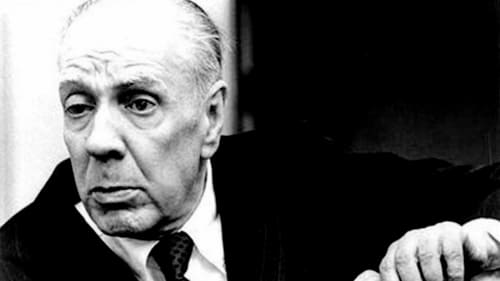
A dramatized approach to the Argentinian writer Jorge Luis Borges (1899-1986) through the recreation of some of his works and the staging of various aspects of his thought and his life.

This film is dedicated to Mas-Félipe Delavouët, the poet discovered by Lawrence Durrell, who wrote 14,000 verses in Provençal over a period of thirty years, and who died on November 18, 1990. "The sky, history and Mediterranean and Provençal myths are the inexhaustable wellspring of this man rooted down there, near Salon-de-Provence" (J.-D. Pollet). "Mas-Félipe Delavouët wrote five books in Provençal, 14,000 verses. A sort of "Odyssey". Of myths. What is stunning in him is that he always talks of disappearances. Cities, works, men, writings, television, etc., everything has to disappear. In order to be reborn. No pain. A sort of hand-to-hand of man and nature. During the filming, I would simply throw out some words... For example, one time I said "creation" and he said: "creation doesn't exist..., creation is before me..., I can only read creation"; this sentence describes Delavouët perfectly (J.-D. Pollet, 1989 and 1993).

Michael Strunge and other young Danish poets, accompanied by images of night-time Copenhagen.

A 1995 Opera Australia performance of Gilbert and Sullivan's classic operetta, recorded at the Sydney Opera House. Bunthorne, a poet worshiped by every lady he meets, loves only one woman: Patience. But Patience does not share the other women's fascination with Bunthorne. She loves Archibald, her childhood friend who is now also a poet.

Short experimental movie about sea, love and trust.

Documentary exploring Ted Hughes, one of the greatest poets of the 20th century, focusing on how his life story influenced his work and vision.

A film about the Swiss Italian poet Fabio Pusterla and his creative poetic process, his struggle to find an honest language, one which adheres to the personal experience and is able to unfold a hidden truth that creates a strong and profound bond with the other, with his public.

A fictionalised documentary about the great Japanese poet Bashô (1644–1694), the spiritual father of haiku poetry. A monk, portraying the poet, journeys through Japan, following Bashô's journal and writing many of his haikus. A ruminant, poetic, Zen Buddhist observation of nature – a return to the lost paradise of unspoilt nature.













